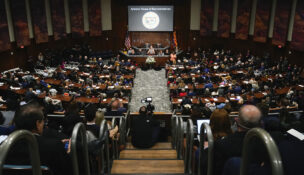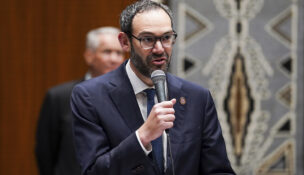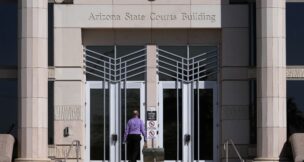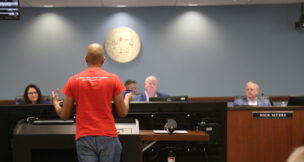Cities, towns seek transportation tax extension
Nathan Brown and Camryn Sanchez Arizona Capitol Times//November 24, 2021//
Cities, towns seek transportation tax extension
Nathan Brown and Camryn Sanchez Arizona Capitol Times//November 24, 2021//
This June 20, 2019, photo provided by the Arizona Department of Transportation shows department of transportation crews set a final bridge girder for Loop 202 South...













































